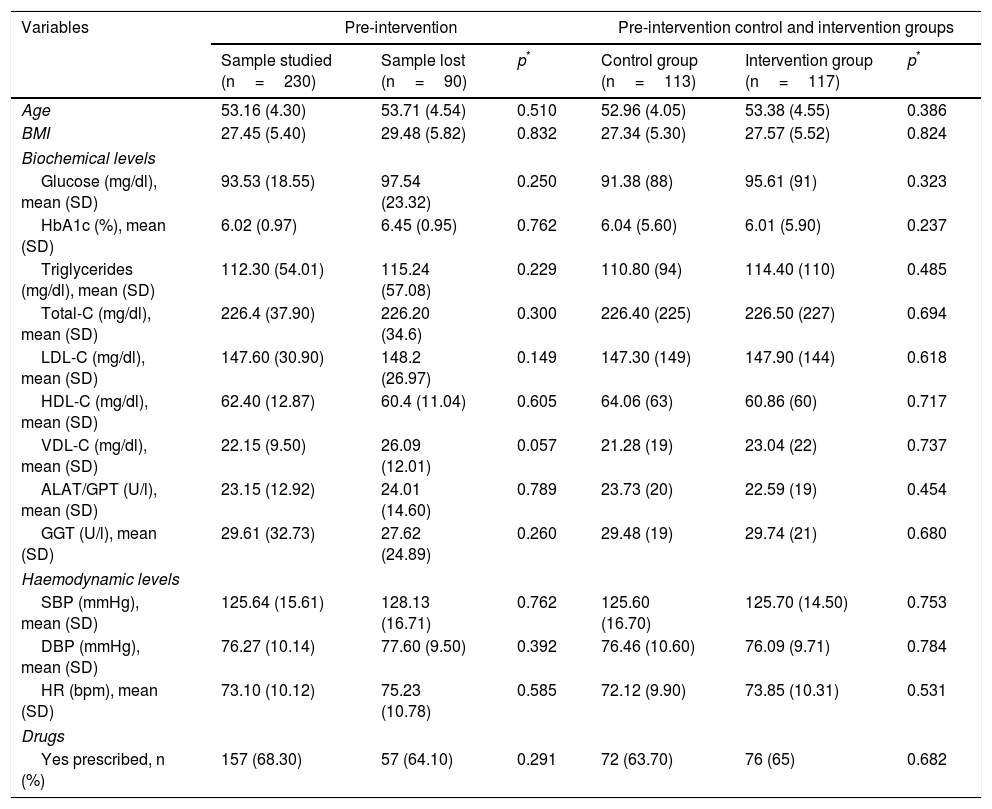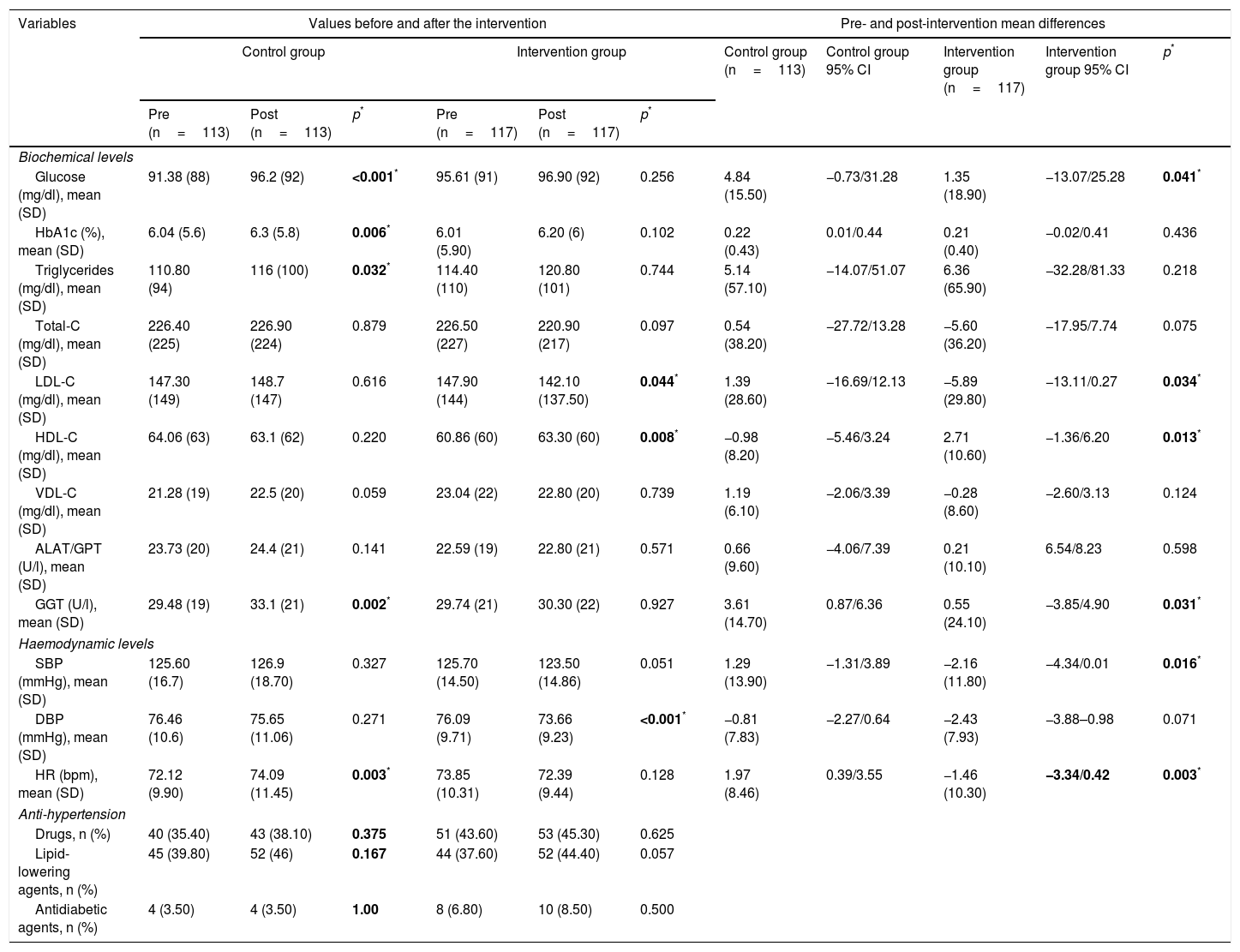Randomised clinical trial performed in two urban health centres in Spain.
To evaluate if educational intervention in women of perimenopausal age with hypertension, diabetes mellitus and/or dyslipidaemia could achieve significant changes in the reduction of biochemical and haemodynamic risk parameters.
Patients and methodsThe study included 320 women aged between 45 and 60 years old who were diagnosed with hypertension, diabetes mellitus and/or dyslipidaemia. They were randomly assigned to the experimental group (n=160) and the control group (n=160). The intervention group received three educational sessions and the control group received an informative leaflet sent by mail. Haemodynamic and biochemical variables were evaluated at baseline and one year later in both groups.
ResultsWomen in the intervention group showed a decrease in low density lipoprotein (p=.034) (−5.89±29.8; 95% CI: −13.1/0.27) and an increase in high density lipoprotein (p=.013) (2.71±10.6; 95% CI: −1.36/6.20), as well as improvements in systolic blood pressure (p=.016) (−2.16±11.8; 95% CI: −4.4/0.01) and frequency (p=.003) (−1.46±10.3; 95% CI: −3.34/0.42) compared to women in the control group. Women in the control group significantly increased glucose (p=.04) (4.84±15.5; 95% CI: −0.75/31.3) and gamma-glutamyltranspeptidase (p=.031), (3.61±14.7; 95% CI: 0.87/6.36) levels more than those in the experimental group.
ConclusionsAn educational intervention can be an effective method of reducing the parameters associated with an increased likelihood of cardiovascular disease in women at perimenopausal age with hypertension, diabetes mellitus and/or dyslipidaemia.
Ensayo clínico aleatorizado realizado en 2 centros de salud urbanos de España.
Evaluar si una intervención educativa en mujeres en edad perimenopáusica con hipertensión, diabetes mellitus y/o dislipidemia podría conseguir cambios significativos en la reducción de parámetros bioquímicos y hemodinámicos de riesgo.
Pacientes y métodosParticiparon 320 mujeres con edades comprendidas entre los 45 y 60 años y diagnosticadas de hipertensión, diabetes mellitus y/o dislipidemia. Fueron asignadas de forma aleatoria a grupo experimental (n=160) y a grupo control (n=160). El grupo intervención recibió 3 sesiones educativas y el grupo control recibió un folleto informativo enviado por correo postal. Fueron evaluadas variables hemodinámicas y bioquímicas al inicio del estudio y un año después en ambos grupos.
ResultadosLas mujeres del grupo intervención mostraron, de forma significativa, una disminución de las lipoproteínas de baja densidad (p=0,034) (–5,89±29,8; IC 95%: –13,1/0,27) y un aumento de las lipoproteínas de alta densidad (p=0,013) (2,71±10,6; IC 95%: –1,36/6,20), así como mejoras en la presión arterial sistólica (p=0,016) (–2,16±11,8; IC 95%: –4,4/0,01) y la frecuencia cardíaca (p=0,003) (–1,46±10,3; IC 95%: –3,34/0,42) en comparación con las mujeres del grupo control. Estas últimas aumentaron significativamente los niveles de glucosa (p=0,04) (4,84±15,5; IC 95%: –0,75/31,3) y gamma-glutamiltransferasa (p=0,031) (3,61±14,7; IC 95%: 0,87/6,36) en comparación con las del grupo experimental.
ConclusionesUna intervención educativa puede ser un método eficaz para reducir los parámetros asociados a un aumento de probabilidad de sufrir una enfermedad cardiovascular en mujeres en edad perimenopáusica con hipertensión, diabetes mellitus y/o dislipidemia.









